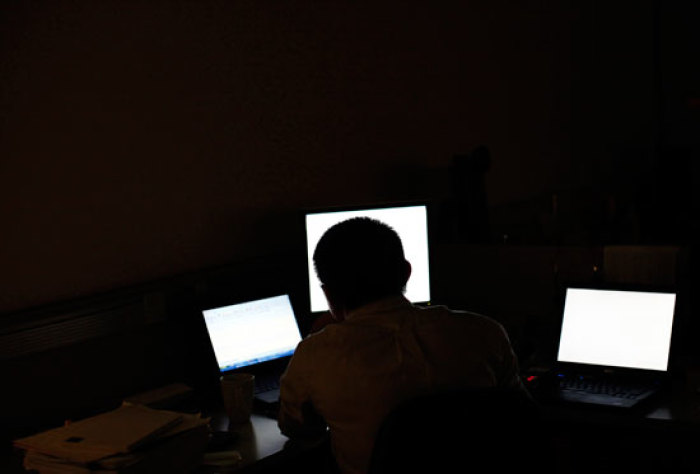Young men who watch a lot of porn less likely to get married, but not true for women: study

A forthcoming study in the Sexuality & Culture journal has suggested that young men who watch an excessive amount of pornography are less likely to get married.
The opposite was not true for young women, however, said the authors, Samuel L. Perry of the Department of Sociology at University of Oklahoma, and Kyle C. Longest of the Department of Sociology at Furman University.
What is more, adherence to religious beliefs did not have an affect on the porn viewing habits of young men.
The researchers worked with the hypothesis "higher levels of pornography viewing will be associated with a lower likelihood of entrance into marriage during early adulthood" in analyzing studies and surveys.
They found that it was "unsupported in the main effect," but that was due to gender differences. Men who viewed porn at high frequencies "were indeed less likely to be married" than moderate viewers of explicit material.
"Women’s pornography use, however, was statistically unrelated to their likelihood of marriage," the study added.
The researchers were surprised to find that being religious didn't help.
“Also, contrary to our expectations, religious commitment did not moderate the link between frequent pornography consumption and marriage entry for either men or women,” it continued.
“For young adult men it seems, viewing pornography is associated with a lower likelihood of marriage during early adulthood regardless of how religious they are.”
Perry and Longest pointed out that pornography viewing has become more prevalent among younger Americans. They explained that while a number of studies have been carried out on the effects of porn on people already married, theirs is the first “to longitudinally examine whether pornography use is associated with young Americans’ decision to enter into marriage in the first place.”
The researchers argued that it could be concluded that young adult men, regardless of how religious they are, will have a lower likelihood of getting married as young adults if they frequently consume pornography.
As for why the same observations did not hold true for the women, they suggested it could because of the small number of women who admit to watching porn often.
“Theoretically, we also expected this to be the case because studies of women’s pornography use suggest they are more likely than men to view pornography when they are already in a committed relationship, not in isolation or even as an alternative to a romantic relationship as men are more likely to do,” they added.
“An interesting twist on the findings, however, was that the association between pornography use and marriage entry during early adulthood did not seem to be linear for men. While evidence was found for differences in marriage entry between the most frequent pornography viewers and moderate viewers, there were no significant differences between more frequent viewers and non-viewers.”
The results suggested that young adults who do not view porn may be “still naïve and disengaged in terms of romantic relationships,” as it was “rare for emerging adult men to not have any exposure to pornography.”
Separately, the usage of porn in young adults was blamed by some experts in part for the statistics in the General Social Survey, which in November documented a "recession" in sex in America.
Charles Fain Lehman of the Washington Free Beacon argued in a blog post last month that "Americans have conspicuously transitioned en masse from a more sexually active group — married people — to a less sexually active one — the unmarried. Any talk of a 'sex recession' must acknowledge this marriage stagnation."
Kate Julian of The Atlantic added that there are a number of reasons why sexlessness is now more common than in previous eras, the easy accessibility of online pornography being one of them.
"Maybe adolescents are not the hormone-crazed maniacs we sometimes make them out to be. Maybe the human sex drive is more fragile than we thought, and more easily stalled," Julian suggested.





























